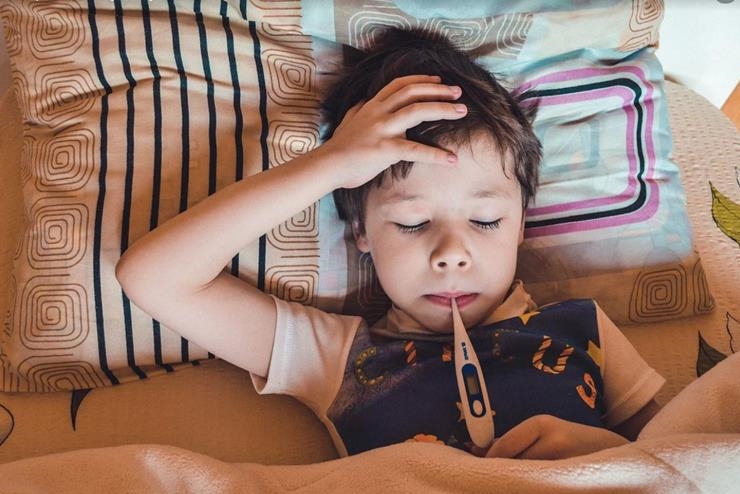I was stricken with COVID last month.
You probably expect me to now explain how awful it was, how I laid around in bed, suffering in agony, and was nearly carted off to the hospital. But that would be a lie.
The real story? I had some congestion, did lots of sneezing, and was quite fatigued. I pressed through it though, continuing to work from home, and would have simply thought I had an unusual, but mild, cold had I not been alerted to potential exposure and then tested positive.
Standing on the other side of COVID, I’m thankful to have had it for several reasons. As I’ve mentioned these reasons to others, I’ve seen them suddenly encouraged, for they are not often heard in our fearmongering news cycle.
The first reason is obvious: I had COVID and lived to tell about it.
Listening to the media, one would think that a positive COVID test is at the very least a guaranteed ticket to the hospital. But such is not the case, for as WebMD reports, 80 percent of COVID cases are mild and unlikely to end in a trip to the ER. Hospital stays also appear to be much shorter than they were in the early months of the virus.
While the virus was long-lasting, it wasn’t even the worst cold I’ve ever had. I find that others who have had the virus underwent similar experiences, namely, the virus wasn’t fun, but it wasn’t as bad as what one might expect. Unfortunately, such anecdotes are not sensational enough to be covered by the media. And the good news? I may be naturally vaccinated for up to six months with the antibodies from the virus!
The second reason I’m glad I got COVID is that I learned a few interesting things about treatment options. When first diagnosed, a nurse called me up, confirmed I had the virus, and then basically told me to just sit tight and fight it out.
A doctor friend of mine, however, gave a different story. Having left the overbearing medical system to set up his own private office several years ago so he could be free to actually practice medicine, this doctor was free to try other treatment routes. He treated a relative of mine, who is in one of the higher risk categories, with a steroid and several other treatments, noting that the earlier a patient is treated for COVID symptoms, the better chance the patient has of recovering before the virus escalates to a severe level.
These treatments worked well for my relative, and apparently have worked well for other patients of this doctor. Last I heard, he had yet to lose or hospitalize a COVID patient. This revelation has me asking whether we could have saved many lives through simple treatments prescribed early on, rather than sitting around, twiddling our thumbs waiting for the vaccine, which has now arrived on the scene but may take a while to distribute.
Finally, having COVID enabled me to ditch the great fear of the unknown. As mentioned earlier, everyone seems to think that a COVID diagnosis is the kiss of death, landing them in the hospital or on the growing lists of COVID fatalities.
Yet the fatality rate really isn’t all that bad for a large portion of the population. “At least 99.95% of people under 70 survive infection; that figure is only 95% for 70 and older,” The Wall Street Journal reports, a fact which can be seen in the CDC chart below. Why are we so afraid of this virus if the chances of survival are so high?

Fear is infecting more Americans than the virus. For months we have sat in our homes, shied away from others, and listened carefully to the diktats of “experts” who tell us exactly what to do to prevent the virus’ spread.
The trouble is, they don’t have any clearer view of reality than we do, and often they seem to deliberately overlook statistics like those above. In all likelihood, they, too, are giving into fears of what the virus could do to them, not only in terms of their personal health, but also in terms of their careers.
I’m not denying that the virus can be dangerous—it is! I happen to know two older adults who sadly passed away from COVID just as I was forming the idea for this article, so I’m not oblivious or callous to the ravages of the disease.
What I am denying, however, is the need to live in a fearful, bunker mentality. Such a mode of living is not healthy for anyone, especially not Americans, who are supposed to be living in a free, self-governing society. Thomas Paine described our time well when he wrote in The Rights of Man, “Freedom had been hunted round the globe; reason was considered as rebellion; and the slavery of fear had made men afraid to think.”
Paine’s prescription for such fear, however, is truth. “But such is the irresistible nature of truth, that all it asks,—and all it wants,—is the liberty of appearing.”
That is why I present you with some tidbits of truth that I learned from my stint with COVID, hoping that like me, you too will take heart and press forward into the next year with more hope and less fear.
Image Credit:
Image from Pixabay

Leave a Reply